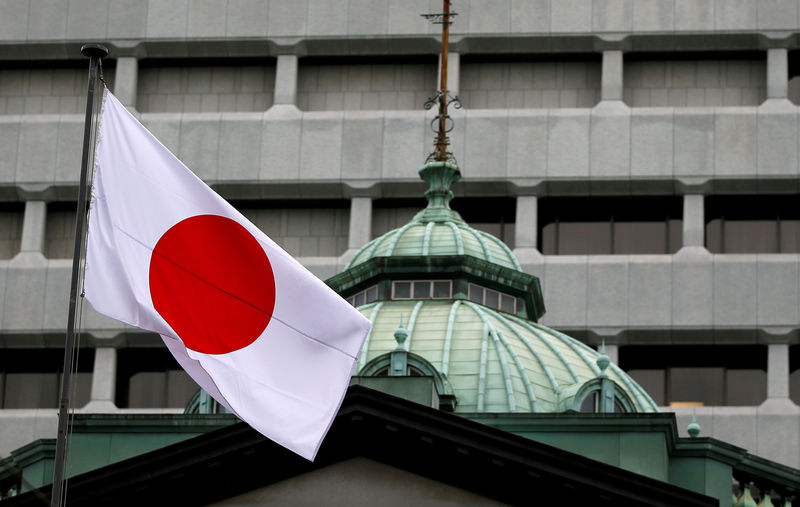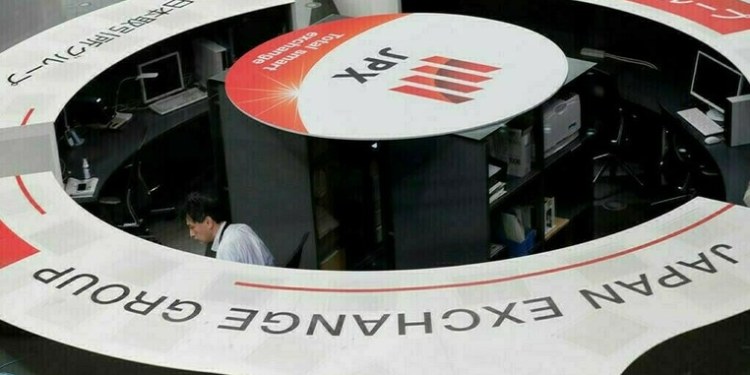 © Reuters. FILE PHOTO: A Japanese flag flutters atop the Bank of Japan building in Tokyo
© Reuters. FILE PHOTO: A Japanese flag flutters atop the Bank of Japan building in TokyoBy Leika Kihara
TOKYO (Reuters) – The Bank of Japan will consider at next week’s rate review changing the composition of exchange-traded funds (ETF) it buys as part of is massive stimulus program, the Nikkei newspaper reported on Thursday.
The move will be part of an overhaul the central bank is planning to make to its ultra-loose monetary policy more sustainable, as inflation remains distant from its 2 percent target despite five years of heavy money printing.
Sources have told Reuters the BOJ, facing stubbornly low inflation, is in unusually active discussions before its rate review on July 30-31, with tweaks to its stock-buying techniques on the table.
The central bank currently buys 6 trillion yen ($54.08 billion) worth of ETFs per year, of which around 1.5 trillion yen is spent on ETFs linked to the and roughly 4 trillion yen on those linked to the index.
While maintaining the total amount, the BOJ will change that composition and increase the amount of purchases for Topix-linked ETFs, and decrease buying of Nikkei-linked ETFs, the Nikkei reported without citing sources.
With Topix-linked ETFs, the BOJ can buy a wider range of stocks than for Nikkei-linked ETFs because the Topix index consists of more types of corporate shares.
Concerns have grown over the BOJ’s ETF buying as it has reduced floating shares in the market and has put the bank on track to become a top shareholder of some big Japanese companies.
Japan’s core consumer prices rose 0.8 percent in June from a year earlier, staying distant from the BOJ’s 2 percent target.
At next week’s meeting, the BOJ will cut its price forecasts and may concede that inflation could fall short of its target for as long as three more years, sources say, in what would the strongest sign yet of acceptance that its goal cannot be reached quickly.
Fusion Media or anyone involved with Fusion Media will not accept any liability for loss or damage as a result of reliance on the information including data, quotes, charts and buy/sell signals contained within this website. Please be fully informed regarding the risks and costs associated with trading the financial markets, it is one of the riskiest investment forms possible.
Source: Investing.com



























